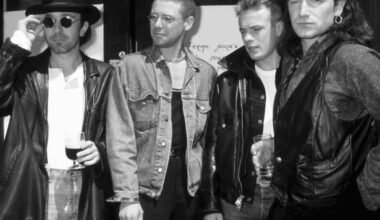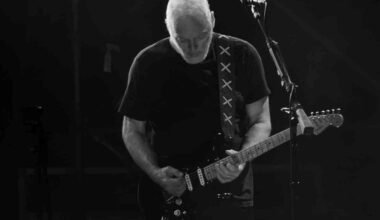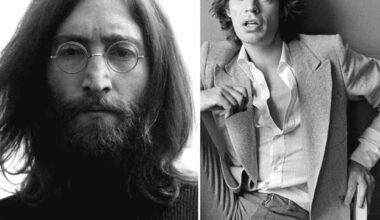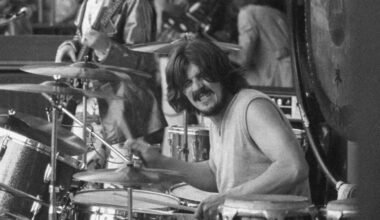Foo Fighters aren’t usually the first band to come to mind for face-melting rock and roll.
Their reputation lies more in Dave Grohl’s signature brand of stadium anthems, beloved by legions of fans.
However, Foo Fighters have always had a heavier side, and this side came to the forefront when they started putting together Wasting Light.
Given their success, Foo Fighters didn’t need to take risks. Their albums had long been vehicles for rock staples like “The Pretender” and “Learn to Fly.”
Like AC/DC, they could have spent the rest of their career churning out the same magic. But that’s not how Grohl operates.
He’s always sought to push boundaries, and with Wasting Light, Grohl had the vision to do something bold and different.
To capture the raw energy he was looking for, Grohl decided to record the album in his garage, ditching traditional studios and fancy producers.
They brought in Butch Vig, the legendary producer of Nirvana’s Nevermind, and the resulting sound was anything but typical.
Each performance on Wasting Light feels like a raw, live cut, packed with tension and authenticity.
This wasn’t just another Foo Fighters album; it was an unfiltered, high-stakes performance.
Grohl’s decision to go this route paid off. The songs on Wasting Light are some of Foo Fighters’ most eclectic and heaviest.
While previous albums flirted with ballads and a mix of styles, this record saw them fully embracing their harder edge.
Tracks like “White Limo” unleashed aggressive punk energy, while “I Should Have Known” stands as one of their most powerful emotional ballads.
In an interview with Kerrang, Grohl explained how this album became a defining moment for the band.
“It is [our heaviest], there’s no question about that,” he said.
“We haven’t made a full-on 11-song rock record in a long time. It’s like you take all of the things that people consider your band’s signature characteristics and just amplify them.”
Beyond the sound, Wasting Light is a deeply personal album for Grohl.
Tracks like “I Should Have Known” offer raw reflections on his past, including the loss of his former bandmate, Kurt Cobain.
Foo Fighters could have stuck to playing the hits, but Wasting Light marked a refusal to take the easy route.
This record wasn’t just about rock songs; it was about stripping down to the band’s essence and pushing their limits.
And, as they moved forward into projects like Sonic Highways, it became clear that Grohl would never settle for anything less than constant evolution.







